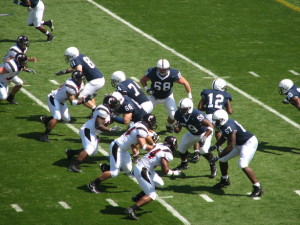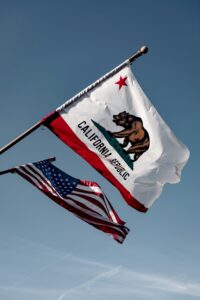August 31, 2016
 Last week, the plaintiff collegiate athletes in a putative class action lawsuit pending in the Southern District Court of Indiana filed their opposition to FanDuel and DraftKings’ respective motions to dismiss. The opposition seeks to keep alive the claims that the fantasy sports companies violated their rights of publicity under Indiana law by including their respective names and athletic records as part of the companies’ online fantasy contest offerings.
Last week, the plaintiff collegiate athletes in a putative class action lawsuit pending in the Southern District Court of Indiana filed their opposition to FanDuel and DraftKings’ respective motions to dismiss. The opposition seeks to keep alive the claims that the fantasy sports companies violated their rights of publicity under Indiana law by including their respective names and athletic records as part of the companies’ online fantasy contest offerings.
How did the collegiate athletes’ argue against dismissal of their right of publicity claims?
The collegiate athletes’ arguments opposing the sought after dismissal consisted of the following:
- A valid claim was made for misappropriation of their rights of publicity that cannot be dismissed at such an early stage of the litigation;
- The fantasy sports companies are not entitled to First Amendment free speech protections because the companies’ fantasy sports contests allegedly violate the Indiana State gambling laws (editorial note: Indiana has passed legislation formally legalizing paid fantasy sports contests); and
- The exceptions to the right of publicity statute, such as making use of newsworthy material and/or the reporting of a topic of public interest, do not protect the fantasy sports companies’ use of the collegiate athletes’ names and likenesses.
DraftKings and FanDuel will each be afforded an opportunity to submit responses to the collegiate athletes’ opposition arguments before the application to dismiss the right of publicity claims is decided by the Court.
Keeping Your Fantasy Sports Venture Safe
Fantasy sports contests and the laws and regulations that govern them, continue to grow and evolve. Many states that have recently passed fantasy sports contest-related legislation have included prohibitions against offering contests involving collegiate and amateur athletes. While there is a clear trend towards exclusion, there is not yet a national consensus on the legality of offering collegiate options among fantasy sports contests. Against this backdrop, it remains imperative to engage competent legal counsel to become/remain compliant with applicable law when setting up or operating fantasy sports contests involving collegiate athletes.
If you are interested in learning more about this topic or pursuing a venture in this area, please e-mail us at info@kleinmoynihan.com, or call us at (212) 246-0900.
The material contained herein is provided for informational purposes only and is not legal advice, nor is it a substitute for obtaining legal advice from an attorney. Each situation is unique, and you should not act or rely on any information contained herein without seeking the advice of an experienced attorney.
Attorney Advertising
Fantasy Sports Companies Fight Right of Publicity Claims
Indiana Legalizes Fantasy Sports
NFL Players File Right of Publicity Class Action Against FanDuel



